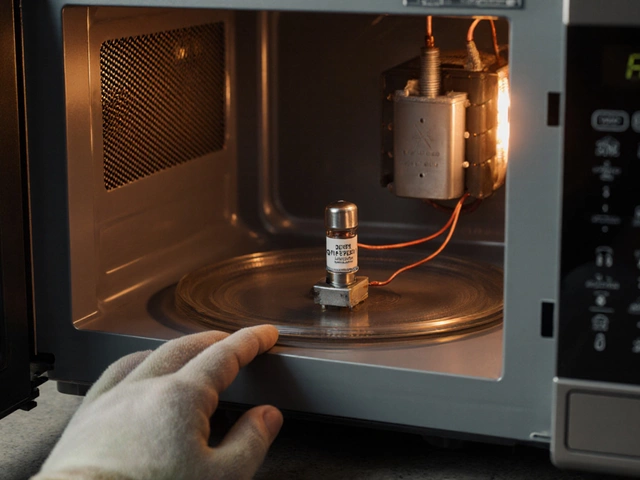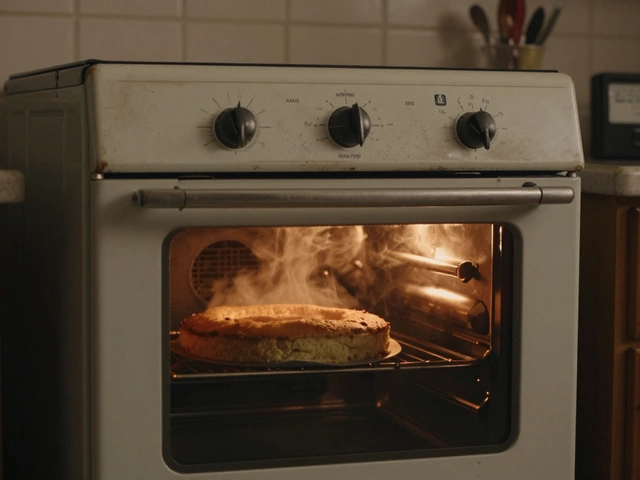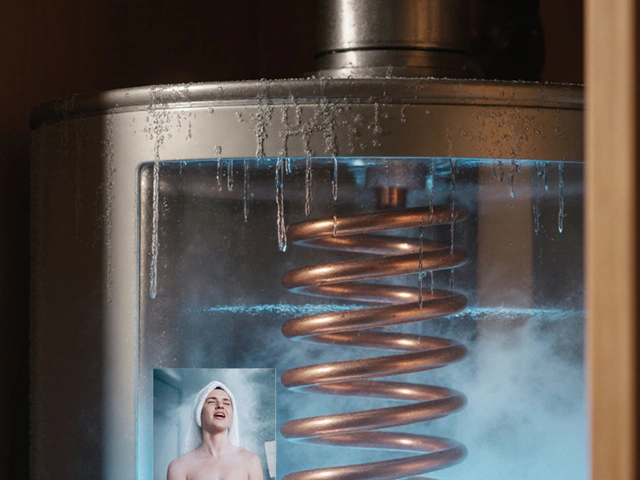Boiler gone cold on you? Swapping it out sounds simple, but there's a bit more to the story than just taking one box out and plugging in a new one. Most people expect a same-day fix, but that's rarely the case, especially if your setup is older or a bit quirky.
On average, replacing a boiler in a house takes about one to three days. That includes everything: turning off the system, disconnecting old pipes, fitting the new unit, making sure your radiators play nice, and then getting those hot showers running again. Some jobs are quick—a straightforward like-for-like swap can be wrapped up in hours. But toss in a different type of boiler, a tricky location, or some surprises behind the walls, and things can drag out.
If you’re wondering what really makes the difference timewise, it comes down to the type of boiler you’re getting, how easy it is to access the old one, and whether any unforeseen issues pop up (let’s be real, older homes love to throw curveballs). Spotting these factors ahead of time means fewer surprises and a quicker, smoother job.
- What Really Impacts How Long It Takes
- A Step-by-Step Look at the Replacement Process
- Common Surprises That Slow Things Down
- Tips to Speed Up Your Boiler Swap
What Really Impacts How Long It Takes
A bunch of things can make a boiler replacement go faster or slower. It’s not just about the brand of your new unit or the skills of the installer. House quirks and local rules can mess with the timeline more than you’d think.
First, the type of boiler matters a lot. Swapping an old combi boiler for a new one in the same place is usually the quickest. Upgrading from a regular boiler to a system or combi boiler is more work. This swap might mean moving pipework, dealing with tanks in the loft, or laying new cables. That’s when things start running into the two- or even three-day mark.
Location is another biggie. If your boiler is in a tight cupboard or up in the attic, it’ll take longer just to get tools, parts, and the unit itself in and out. Easy-access kitchens or utility rooms make for a much quicker job. And if installers run into surprises—like old asbestos panels behind the boiler, crumbling pipes, or outdated wiring—things can grind to a halt while those get fixed.
There are a few other things that crop up, like:
- Whether new controls (like smart thermostats) are going in
- If your gas supply and ventilation are up to current standards
- How many radiators are in the house (some swaps mean every radiator needs checking)
- The time of year—cold snaps mean engineers are busier, so fitting you in can take longer
Last thing: local building codes and safety checks. In the UK, for example, installers need to be Gas Safe registered and must run thorough tests before handing your boiler back to you. These steps are quick if nothing’s wrong, but a failed safety check will mean more delays until everything’s sorted.
A Step-by-Step Look at the Replacement Process
If you’ve never had a boiler swapped out before, knowing what happens (and in what order) can make the whole thing a lot less stressful. Here’s how most pros tackle a boiler replacement job, from start to finish.
- Shut Down and Drain the System: First, the installer turns off your old boiler and drains water from the system. This avoids any mess or leaks when disconnecting pipes. This part usually takes 30-60 minutes, unless your system is ancient and slow to drain.
- Remove the Old Boiler: Next, the crew carefully disconnects gas, water, and electrical lines, then hauls out the old unit. If it's tucked in an awkward spot, like a tight airing cupboard, expect this to take longer.
- Prep the Space: They might need to tidy up pipes or even make small structural tweaks (like patching holes or re-routing plumbing). For straight swaps, this step is quick, but upgrades (like combi-to-system boilers) mean more setup.
- Fit the New Boiler: The new unit gets installed, plumbed in, and connected to the mains. This is the core step—a simple installation can be done in a couple of hours, while complex ones might stretch this to most of a day.
- Gas and Safety Checks: Engineers check for gas leaks and run safety tests. They’ll also fill and pressurize your new boiler system, keeping an eye out for anything odd.
- Commission and Test: Now, they fire up the system, balance radiators, and make sure hot water and heating are running fine throughout the house. The installer tweaks the controls and shows you how everything works before leaving.
- Registration and Paperwork: Finally, installers should register your new boiler with the manufacturer (so your warranty starts) and with Gas Safe. You should get all the paperwork before they pack up.
To give you an idea of timing, check out this quick breakdown:
| Step | Average Time (hours) |
|---|---|
| Shut Down & Drain | 1 |
| Remove Old Boiler | 1 |
| Prep & Adjust Pipework | 1 - 3 |
| Fit New Boiler | 2 - 4 |
| Testing & Commissioning | 1 |
| Paperwork | 0.5 |
Quick tip: Always ask your installer to walk you through the steps before they start. This way, you’re not left in the dark if something takes longer than planned.

Common Surprises That Slow Things Down
The idea of a quick boiler replacement is great, but sometimes real life throws a wrench in your plans—literally. Plenty of homeowners are caught off guard by stuff that wasn’t visible until the old boiler comes out. Here’s where things can get stuck.
One headache that trips up a lot of jobs is outdated pipework. Many homes, especially anything built before the ‘90s, still use ancient pipes not suited for modern boilers. If your installer discovers old lead or steel, they’ll usually need to replace sections of pipe, adding hours or even a full day.
Another classic is hidden water leaks or corroded fittings. It’s only when the system is drained that techs spot small leaks, rusted valves, or strange gunk clogging things up. Dealing with these unexpected repairs can kill the schedule.
If your old boiler is tough to get to—maybe it’s stuck in a tight cupboard, attic, or a boxed-in corner—installers will spend extra time wrestling it out and prepping the space for the new unit. Odd setups eat time fast.
Then there’s electrics. New boilers usually need updated wiring and may need their own power supply. If your home’s fuse box is ancient, the installer might have to call in an electrician before starting the install for safety reasons. This is a common roadblock in older houses.
Here’s a quick look at the most common hold-ups and their usual impact on time:
| Surprise Issue | Extra Time (Avg.) |
|---|---|
| Pipes need replacing | +4 to 8 hours |
| Electrical upgrades | +2 to 6 hours |
| Access problems | +2 to 4 hours |
| Hidden leaks/corrosion | +3 to 6 hours |
It’s worth noting, installers run into at least one of these problems in about 40% of jobs (according to Checkatrade’s survey from last year). Double check the age of your home and ask your installer about potential hurdles before they start—knowing what’s possible means fewer cold nights and a less stressful process.
Tips to Speed Up Your Boiler Swap
If you’re set on getting heat and hot water back in record time, you can do a few things to smooth out the boiler replacement process. The right prep can mean the difference between a fast, pain-free job and one that drags on for days.
First, clear the area around your boiler before the pros arrive. Move anything that’s in the way—think laundry, old paint cans, boxes. Techs love a tidy space, and a clear path saves them time setting up and hauling equipment.
Next, have your paperwork ready. Dig out your boiler model details, warranty info, and past service records. This gives the installer a quick heads-up on what they’re dealing with and helps them prep the right parts and tools before showing up at your door.
- Decide what boiler you want early. If you wait to pick a model, you might run into supply delays. Ask your installer for recommendations and check availability before making your pick.
- Let neighbors know if work might block shared spaces or driveways. Saves hassle later and keeps the techs moving without interruptions.
- Arrange pets or kids away from the work zone. Installers move fast with blowtorches and tools—giving them room keeps everyone safe and speeds things along.
Real talk: the biggest time-waster is waiting for parts. According to UK Boiler Guide research, over 30% of delays are down to out-of-stock units or fittings. So, double-check with your installer that all parts—especially the boiler itself—are at hand a day or two before appointment day.
Wondering what folks usually get stuck on? Here’s a quick cheat sheet comparing common time factors:
| Task | Extra Time Needed? | Reason |
|---|---|---|
| Switching boiler type (e.g., regular to combi) | Yes, add 1-2 days | Extra pipework and wiring |
| Upgrading old controls/thermostats | Maybe, 2-4 hours | Compatibility checks |
| Relocating the boiler | Yes, up to 2 days | Running new pipes |
| Standard swap, same location and type | No | Usually done in a day |
If you want the fastest possible turnaround, book your job midweek and avoid busy winter months, when installers get swamped. And if you spot anything weird—like leaks or weird noises—mention it when booking. The more info you give, the less chance of day-of surprises messing up your timeline.





